From Countless Interview Requests to Endless Bus Rides: Doing Fieldwork on Coal Mining and a Just Transition in South Africa
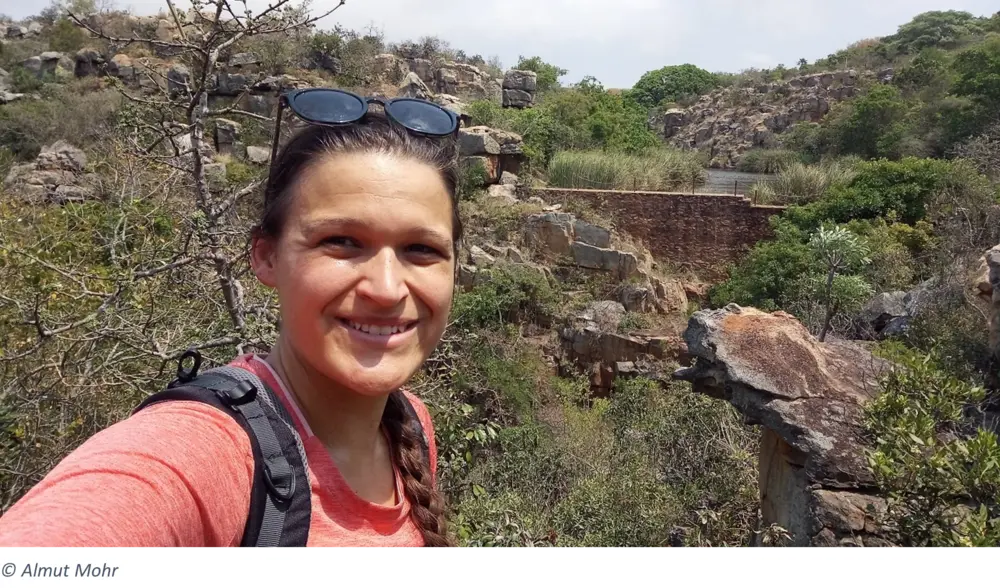
How to fight for (or against) a just transition in South Africa? In this post, Almut Mohr reflects on her experiences of doing field research on coal mining and a just energy transition in South Africa as well as on insights into different perspectives on the just transition that she gained during her stays in the country.
On a snowy day in February, I left Erfurt with great anticipation for my fieldwork and great uncertainty about what to expect in South Africa, a country I had never been to, but had read so much about in the last years. However, the story of my fieldwork begins much earlier…
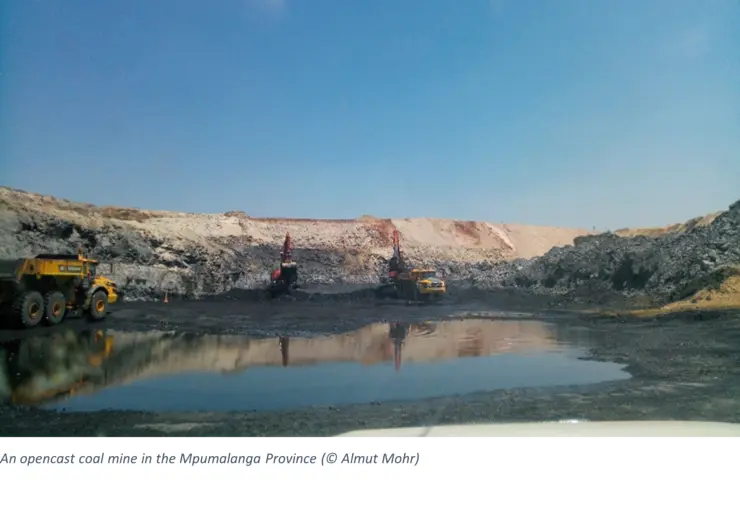
Voices From the Ground: The Significance of Fieldwork in South Africa
In my research, I focus on social movements – environmental movement and labour movement – in South Africa's just energy transition. The country’s high percentage of coal in its electricity mix and the country being among the first to use the term just transition in its national climate targets as well as the highly active and engaged civil society had caught my interest years ago.
In South Africa, coal mining and coal fired-power plants are concentred mainly in the Mpumalanga Province. Thus, the impacts of ending coal mining will be mainly felt by communities, workers, and their families in this province. At the same time, these communities currently suffer from the negative impacts of coal: severe health risks due to high air and water pollution, damages of infrastructure due to heavy coal trucks, and damages in houses due to blasting in coal mines very close to people’s homes.
Since I am particularly interested in the views and perspectives of social movements – environmental and labour – fieldwork in South Africa and qualitative interviews seemed to be the best way for my research. With my research, I aim to understand the vision of the energy future and the roles of social movements in transition. My target groups were environmental organizations, community-based organizations from communities directly impacted by coal, and organized labour representing workers from the coal sector.
Preparation Matters
Before travelling to South Africa, I carried out extensive desk research to identify organizations, individuals, and trade unions that I wanted to interview. While some of the people I contacted responded very quickly and were open to an interview, others never responded to my request. By the time I got on the plane on that snowy day in February, I had managed to arrange a handful of interviews..
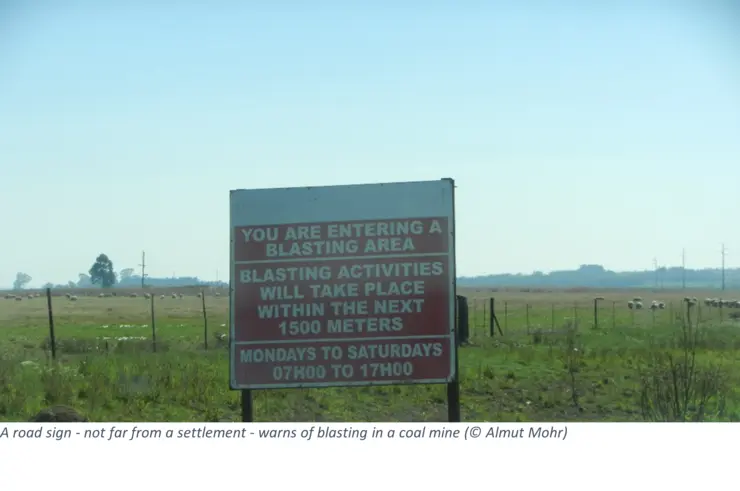
During my two stays in South Africa, the second stay followed in fall the same year, I conducted interviews with very different people in different places. In the end, follow-up emails and the snowballing technique - thus asking interviewees for more interview recommendations - secured me a good number of interviews during my two stays. During the second stay, I could also arrange interviews with people whom I didn’t manage to meet before. Each interview was different, and many interviewees shared their very personal story and motivation with me, for which I'm particularly grateful.
In the Field: Navigation South Africa’s Landscape
My first itinerary in South Africa started in Cape Town. From there I travelled to Durban, to Johannesburg and Pretoria, and then to two municipalities in the Mpumalanga Province. Being back in South Africa in fall the same year, I also continued my field research with additional interviews, especially in other municipalities in the Mpumalanga Province. This helped me to delve deeper into the struggles of communities in the coal region.
During the two field trips, I had the opportunity not only to talk to interviewees from different organizations, but also to explore the country by public transport - such as the unforgettable 29-hour bus ride from Cape Town to Durban, or the more than 20-hour bus rides from Johannesburg to Cape Town. To get to and around the Mpumalanga Province I hired a car. As someone who rarely drives cars, driving on 'the other side of the road' and adjusting to South African traffic rules was an adventure in itself.
While travelling across the country, I could also experience the changing debate about the just transition in the different parts of the country. In the big cities, Cape Town, Durban, and Johannesburg, it is mainly discussed as a necessity due to the severe climate impacts of electricity generation from coal. In the coal region, however, the debates focus on negative environmental and health impacts of coal mining for surrounding communities. Moreover, there, the importance of taking communities and workers along the transition process was also highlighted to a greater extent.
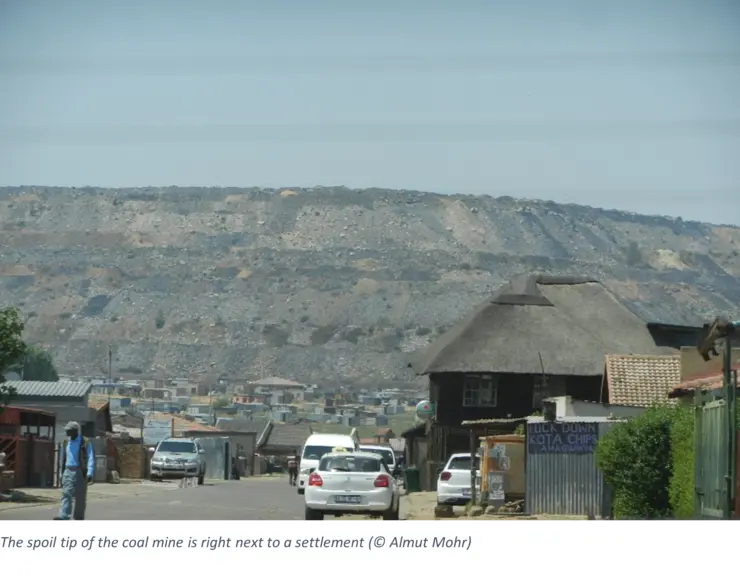
Bearing the Burden & Being Under Attack: Activists’ Struggle
In particular, the women engaging in community-based organizations in the coal region will stay in my heart. Their very personal reflection on discussions and debates within their own families and their first-hand experiences of how air pollution from coal mines and coal-fired power plants causes illness (and death) in their children testify to an impressive strength and motivation to engage despite setbacks.
Besides the conflicts within families or between activists and unionists, there is an additional layer making life for environmental and climate (justice) activists difficult in South Africa: Activists are being defamed by high government officials as well as people from unions. One of the representatives of a trade union expressed that unions should have more influence than environmental groups in the debate on just transition because "we represent people whereas they are just people with opinions". Activists continue their fight for a just transition in a very contested environment.
Coal Mining Houses in the Crossfire: Perceptions and Realities
In coal regions, mining companies wield considerable influence for several reasons: First, workers in the mines receive a relatively high wage. Second, mining companies provide support to local communities in the form of Social Labour Plans. Third, the rate of unionization in the mining industry outstrips that of other sectors, granting trade unions notable power. Thus, despite the negative impacts of coal mining on air pollution and health, there are still a significant number of coal workers. They have already made ‘their pact with the devil’, as one of my interviewees described the situation of coal workers who see no other employment opportunities in a region where the economy is so concentrated on the coal sector. Thus, people prefer to accept the health risks of working in the coal sector rather than run the risk of being unemployed.
Activists in the coal region and other interviewees highlighted that there is increasing awareness of climate change and the need for phasing-out coal by transitioning to renewable energies. Lots of interviewees also mentioned that people working in the coal mines are migrant workers, because people growing up in the coal region suffer from health problems, due to which they cannot work in mines The Social Labour Plans where often criticized by activists as not being enough or as programmes that do not sufficiently support the communities. Thus, the image of coal mining companies is way more contested than one might think in the first place.
Beyond the Surface: Unravelling Trade Unions’ Complex Stance
The various discussions with unionists representing coal workers showed a mixed picture of trade unions’ positions on the phase-out of coal mining and the just energy transition. There are a great number of unionists that try to balance representing workers that will lose their employment in a declining coal sector, while also fighting for a just transition. Other unionists seem to try to influence the discussions on the just transition in such a way that people contest the transition, neglecting that the low-carbon transition will create new employment opportunities. Such unionists often call at least for a pause, if not a stop, of the current just transition. Many unionists stressed that they do not only represent the workers, but that workers are also part of communities. By highlighting this, unionists tried to justify their influence on the decision-making and wanted to make clear that their voices need to be heard.
The Hurdles of Planning and Implementing a Just Transition
The Interviews, particularly the ones that I conducted in the heart of coal mining in South Africa, showed me the great complexity and challenges of a just transition. Not only to speak with one voice but even more to fight the triple challenge of poverty, inequality, and unemployment, which are all three considered to be part of a just transition for South Africa. Environmental groups, trade unions, and community-based organizations need to work together to impact national decision-making to achieve a just transition that is indeed just for workers and communities.
The just transition in South Africa is still in its infancy. The exact implementation of the just transition is therefore unclear – a concern raised by various stakeholders. It is very clear that the success and impacts of the transition will be measured against the participation of all stakeholders. Participation is a Constitutional Right and the current lack of sufficient and easily accessible opportunities for participation was criticised by almost all my interviewees.
At this stage, it is not possible to say if the just transition will succeed in fulfilling the expectation of civil society regarding their participation in the whole process. What is certain, however, is that – in one way or another – the findings of my research will be published. So, stay tuned to read more about it!
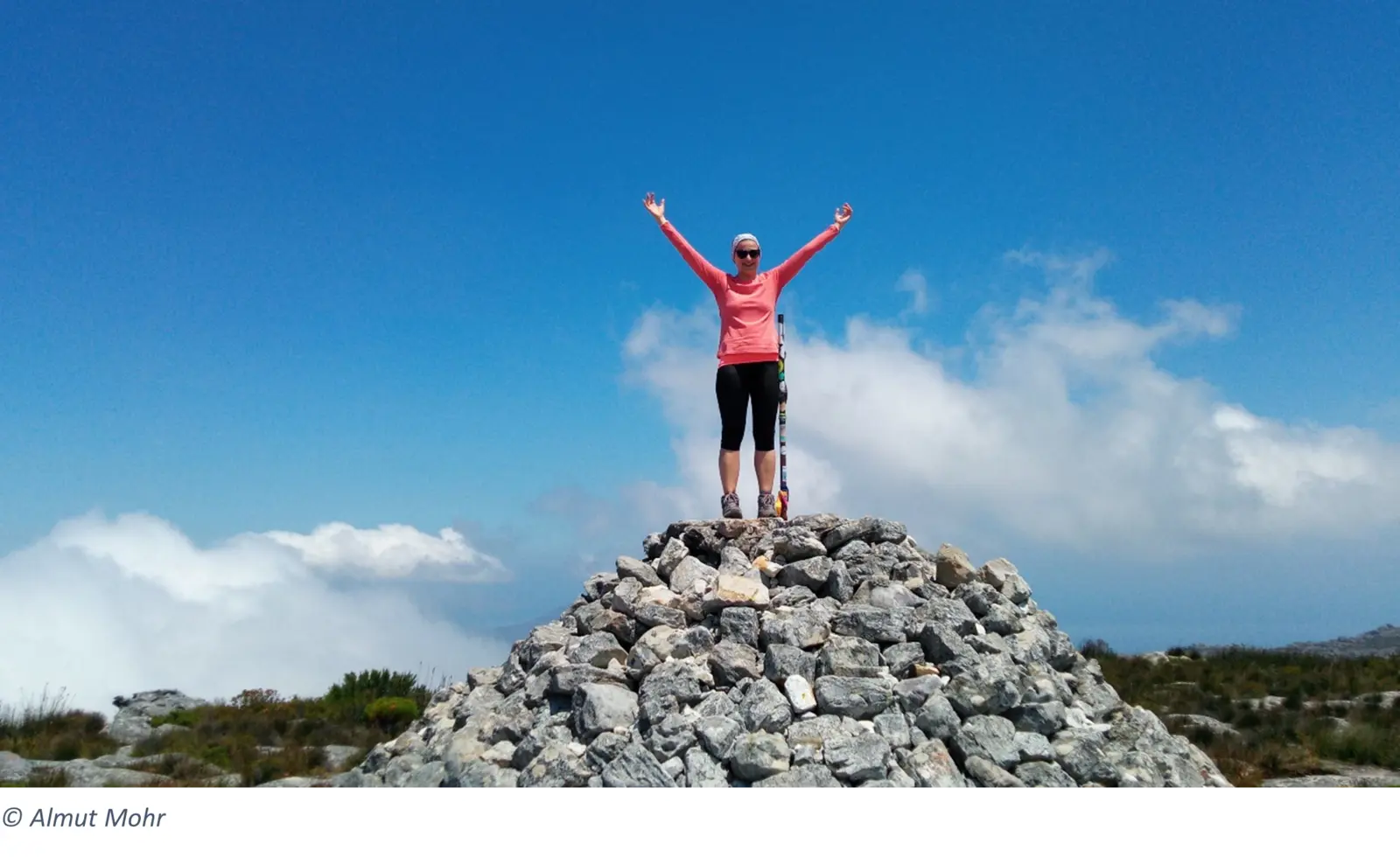
About the Author
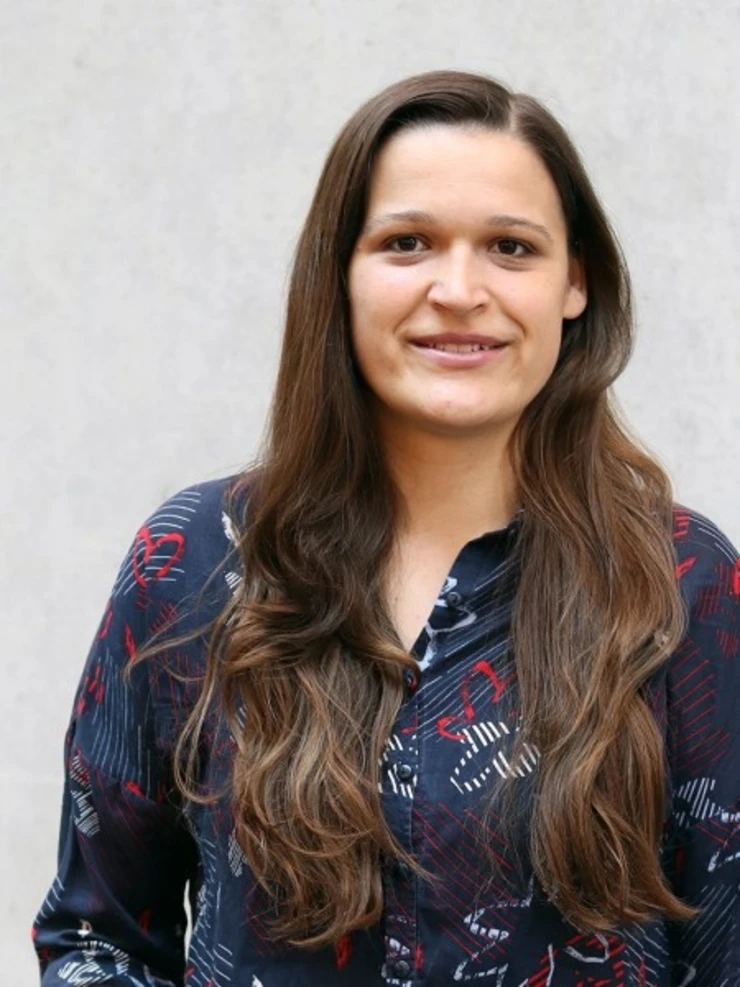
Almut Mohr is a Doctoral Student at the Willy Brandt School of Public Policy.
~ The views represented in this blog post do not necessarily represent those of the Brandt School. ~